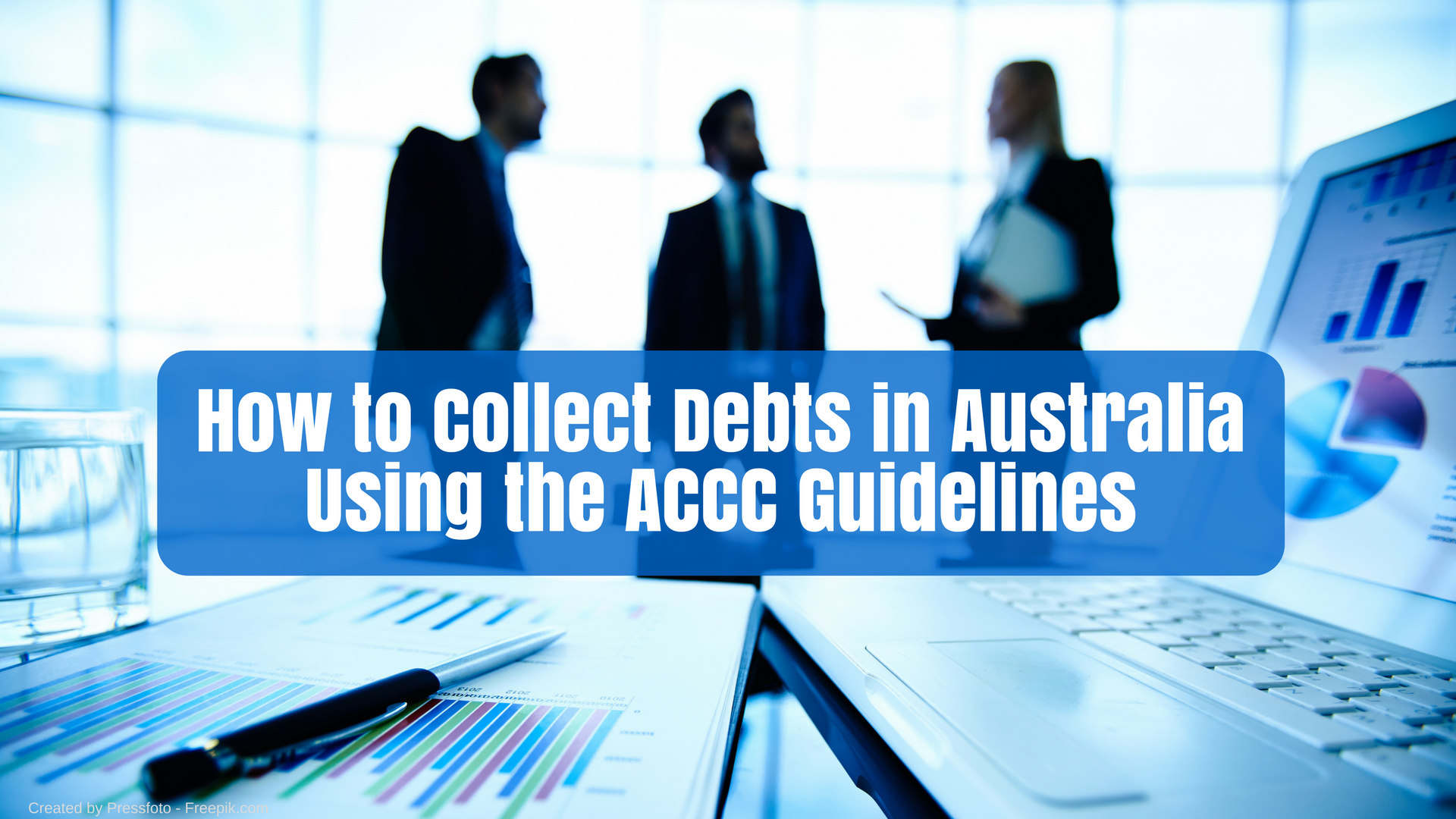How to Collect Debts in Australia Using the ACCC Guidelines
Hi, my name is Adam Stewart, Debt Collection Expert and owner of Debt Recoveries Australia.
If you want to try and collect your own debts before you outsource to a reputable collection agency or litigation firm, here is a quick summary of the do’s and don’ts of debt collection here in Australia.
The debt collection guidelines are set by the Australian Competition and Consumer Commission (ACCC) and the Australian Securities and Investments Commission (ASIC).
The guidelines provide guidance areas for when you are seeking to collect an outstanding debt. Various case studies and examples are provided to assist you. The importance of this is that it gives you strong guidance on what you should and should not do if you wish to minimise the risk of breaching the Commonwealth Consumer Protection Laws.
Some of the key points to keep in mind are as follows:
- When making contact with a debtor, ensure you are dealing with the debtor and that you identify yourself (i.e. confirm their identity and do not misrepresent your identity).
- If the debtor advises they are unable to pay, you are entitled to make reasonable enquiries regarding their financial position, particularly if they are seeking to make repayments over time.
- Legal obligations under the Privacy Act 1988 attach to the information collected from or about a debtor.
- Do not disclose information about the debtor to third parties (e.g. if an individual this includes work colleagues or spouse).
- Avoid contacting the debtor via a method that they have specifically requested not be used.
- Contact with a debtor must be made during reasonable hours (e.g. 7:30am to 9pm).
- Excessive contact with a debtor may constitute undue harassment (e.g. more than 3 times per week).
- A debtor is entitled to respect and courtesy and contact is to be free of intimidation or humiliation.
- The Guide considers face-to-face or “field” visits to be an option of last resort (particularly if seeking repayment from an individual at their workplace).
- Do not trespass.
- If a debtor has an authorised representative (e.g. financial advisor, solicitor or carer) then you should no longer contact the debtor directly.
- You should maintain accurate records of your dealings and communications with the debtor.
- Evidence of the debt being pursued should be provided on request.
- Care should be taken when making representations about the consequences of non-payment or the legal status of the debt.
What If I still can’t collect my money?
The guide does not impact upon the legal enforce ability of debts that a debtor owes to a creditor. The guidelines are mainly concerned with non-court debt recovery processes and collection activities before a court action is commenced or after a court judgment.
The ACCC Guidelines does not limit any right you may have to:
- take legal action to collect a debt;
- conduct legal repossession activities and other legal enforcement of legitimate security interests;
- seek and obtain pre-judgment remedies;
- enforce judgment through a court process – including examination hearings, instalment orders, orders for the seizure and sale of property, garnishment or attachment orders; or
- undertake all necessary procedures (e.g. for serving documents) associated with these actions.
Keep in mind that you must not threaten action (legal or otherwise) that you are not legally permitted to take or do not have instructions or authority to take, or you have no intention to take.
What if the debtor still does not pay?
If a debtor doesn’t make payment and you are looking to take further action or litigation, call Debt Recoveries Australia on 1300 799 511.
Debt Recoveries Australia is the expert at recovering your outstanding debts without the drama. For more information, email us at email@debtrecoveries.com.au or call 1300 799 511. Talk to us about your debt collection concerns via Skype at debtrecoveries.
 Debt Recoveries Australia
Debt Recoveries Australia